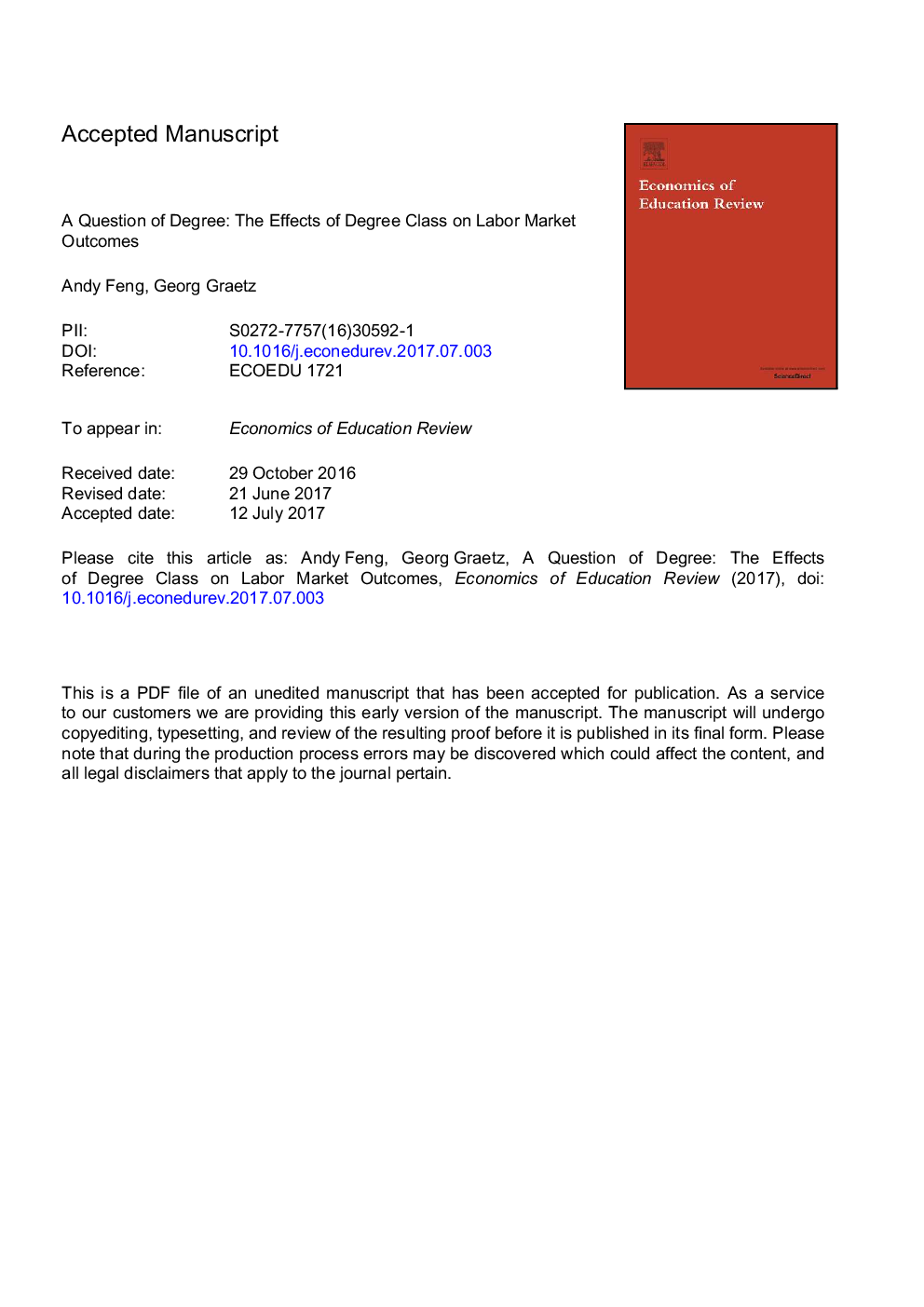| Article ID | Journal | Published Year | Pages | File Type |
|---|---|---|---|---|
| 6840831 | Economics of Education Review | 2017 | 47 Pages |
Abstract
How does performance at university affect labor market outcomes? Employing a regression discontinuity design, we show that university degree class causally affects graduates' industry, wages, and earnings. Our sample consists of students at the London School of Economics, and our data combine administrative records with the Destinations of Leavers from Higher Education survey. We estimate that receiving a First Class degree instead of an Upper Second increases the probability of working in a high-wage industry by fourteen percentage points, leads to three percent higher wages, and yields two percent higher annual salaries. For the comparison between Upper and Lower Seconds, the corresponding figures are ten, seven, and four. Effects are larger for males and graduates of math-intensive degree programs. We show that this is consistent with a model of statistical discrimination, in which employers attach more importance to the degree class signal if it is more informative about underlying ability.
Related Topics
Social Sciences and Humanities
Economics, Econometrics and Finance
Economics and Econometrics
Authors
Andy Feng, Georg Graetz,
